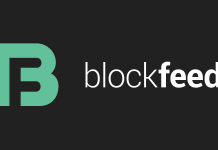Air will allow users to gain back control of their personal data, in addition users will be able to monetise their personal information. Business will be paying XID tokens when they are granted access to specific parts of a user’s digital identity. To visualise this system one can think about the Google login which some companies use to allow access to their services. Air’s platform has parallel with the Google or facebook login. Through Air, users allow access to their digital identity to companies, hospitals and internet enabled devices that need it in order to transact with them.
Can you introduce yourself?
Daren Seymour. I am have more than 25 years of experience developing IT projects in across different industries. I have worked in software engineering, application development, security, high performance computing and program/project management. I am the director of Sphre the company developing Air, Eon and Ctrl.
What is Sphre?
Sphre is a tech company with focused on turning blockchain tech into commercially profitable projects. There are opportunities to move blockchain from the tech world into the commercial one for the benefit of both the customers and business. We see outstanding opportunities in digital identity, digital healthcare, IoT, and renewable energy.
What it Air?
Air is a three part system ; Application/User, Data (Storage) and a Blockchain. This software will solve many problems that both users and enterprises face today. Users will have control over their data and privacy, allowing them to control who has access to what. Enterprises will know that they have the latest information and that a personal using the digital identity is not fake.
In which jurisdiction will Sphre and Air operate in?
The Air Platform is a global ‘self-sovereign’ digital identity system. An example of a Self-sovereign identity is how we store items like birth certificates and our other important documents today, which is in a safe and accessible place for us alone, we do not store these documents with a 3rd party. A Self-sovereign identity is a digital equivalent, allowing personal data to be stored on the user’s designated device, for onward sharing on a per request basis.
Is the Air blockchain both a cryptocurrency and a storage of personal data?

The Air Platform is a hybrid implementation. At the data storage layer we have implemented a NoSQL High Availability (HA) database structure that will enable us to store a small amount of user trivial information (such as the users stated interests). All non-trivial user information will be stored blockchain decentralized and cryptographically secured.
How will the mechanism to unlock certain parts of personal information work?
We will implemented a data timed release scheme, this will enable users to provide personal information to 3rd parties on a time limited basis upon user approval via the usage of what we call data pointer records. The data will be shared via pointer record unlock, and then relocked upon expiry of the record.
Air has recently partnered with AirtBitz to improve security, what other measures will be in place to protect user data?
We will only centralized secure what we term ‘trivial’ data (such as stated interests), and this will be secured via technology that we term ‘secure cell’. All user non-trivial data will be blockchain secured.
In which markets will Air and EON operate in?
Our aim is that all our portfolio products can be used globally. For Air we will adhere to data privacy standards where these currently exist, such as in Europe with the incoming GDPR regulation, for EON we will fully comply with HIPAA compliance standards.
What will be the approach in helping hospitals make the transition from their in-house systems to EON?
Our approach is based on a per institutional requirement basis, and is very much projectized. We expect in the majority of cases this will involve the transition and cryptographic security of Electronic Medical Records (EMR) and the individual’s control of these records for sharing and monetization. We expect these transitions to be phased based on appropriate user grouping and new system on-boarding, and will fully support our customers in this important endeavor.
Air is the first part of a three integrated projects. Eon will be the second part, focusing on the medical industry; insurance, patient records etc. Ctrl will be the third part, this project facilitates the connection between individual and internet enabled devices aka of Internet of Things (IOT)
Will EON and Ctrl have separate ICOs?
It could be the case that we would perform further ICOs, but this would need to be decide by the companies stakeholders, and at this time we have no plans for this to take place.
Given that without AIR, EON and CTRL cannot exist. The development of these two systems will also borrow on the building blocks of AIR.
Will AIR token holder be automatically given EON and CTRL tokens?
Our token, XID is the token of our portfolio products, so we will not issue separate tokens for these products. Based on this approach, we expect to be able to deliver significant value increase in the medium/long term to holders of XID.
Will Enterprises that access the personal data have also the right to store it, what happens when users update parts of their digital identity?
Enterprises will be allowed to request the purchase of a set of personal data from users, but we do not expect this to generally occur, as it limited monetization opportunities on behalf of the user. If a digital identity is updated during the limited timed usage scheme, then the enterprise will receive this update, however if not, a new request to the user for data sharing will be required to be made.
Can organisations have a digital identity on Air?
Yes, certainly with identity multi-signature capability.
Digital identities will be able to rank, comment, credit rate each other? What kind of recourse will the receivers of such feedback have?
Air will initially support three identity based activities:
- Verifiable claims, e.g. I am over 18.
- Proofs, evidential identity verification in support of a verifiable claim, e.g. birth certificate.
- Attestations, formal verification that a given identities claims are true.
Given this structure, we allow users to become attested to by other users and organizations, and therefore build formal reputation, and also allow the user to monetize their attestations in formal Know Your Customer (KYC) processes, thereby also decreasing KYC overhead for organizations.
The system that you have noted above could certainly be easily built leveraging the Air Platform however for more generalized view of reputation, and of course this would require a strong repudiation system to be implemented in order to ensure that all users were treated fairly.
ICO and Coin Details:
- Launch Date 1st June
- Token Name: XID
- Total supply: 55 million
- Percentages are
- Founders reward: 2.5% of the total XID issues during the Crowdsale capped at 1.25 million XID.
- Bug Bounties: 6.5% of the total XID issues during the Crowdsale
- Bounties: 1% of the total XID issues during the Crowdsale
Use of ICO funds:
- 45% Governance
- 35% Marketing
- 9% Accounting
- 8% Infrastructure/Audit
- 3% Contingency
KYC (Know your customer)/ AML (Anti Money Laundering) regulation is a bottleneck for many small enterprises trying to compete with bigger organisations. Most likely , in the future the ICOs will be regulated, requiring industry Standard KYC/AML procedures to be implemented.
Can Air play a major role in such a reorganisation of this space?
Definitely, we expect to be able to provide decentralized KYC/AML information to organizations via user permissioned attestation data sharing, thereby alleviating the significant cost overhead currently experienced by enterprises for these processes, and also enable users to further potentially monetize their personal data leveraging XID as reward.
Is there any other key information that investors need to be aware of, that has not been covered in the above questions?
Suffice to say, our aim is to build great products, and enable new business models and ways of doing business, and also return significant value to holders of XID in the medium/long term.
What is the most important lesson you have learnt when managing software development projects?
I think Gall’s law is always a great starting point for any software development project:
“A complex system that works is invariably found to have evolved from a simple system that worked.”
Can you envisage Air as a compliment or integration with e-Government services?
Yes, definitely. In an increasingly digital society, personal data has become a new form of

currency. The biggest challenge for our leaders in government today in my view is to establish the trust that enables that currency to flow, and our aim is quite simply to facilitate this for consumers, enterprises and governments that require digital identity services such as digital passports and government services access.
BAT The Basic Attention token has a similar system however it is entirely focus on internet advertising. What does Air have in common with BAT?
The touch point is really Attention Economics, however we do not prescribe the use of a specific browser environment in order to receive reward. We are also much more targeted on the individual, as the individual has already stated to us their specific interest, and therefore we expect greatly increased content click through based on our approach, we are in effect promoting a one-two-one relationship between the content provider and the customer which we feel will provide a win-win for both consumers and marketers/vendors.
More Information:
Sphere
Google Drive Docs
Facebook
Twitter
Linkedin
Reddit
Bitcoin Talk
Telegram
Slack
Invitation for Comments: In your opinion what are the Strengths and Weaknesses of Air? Will Digital Identities be an important part of doing business on the internet n the future?












